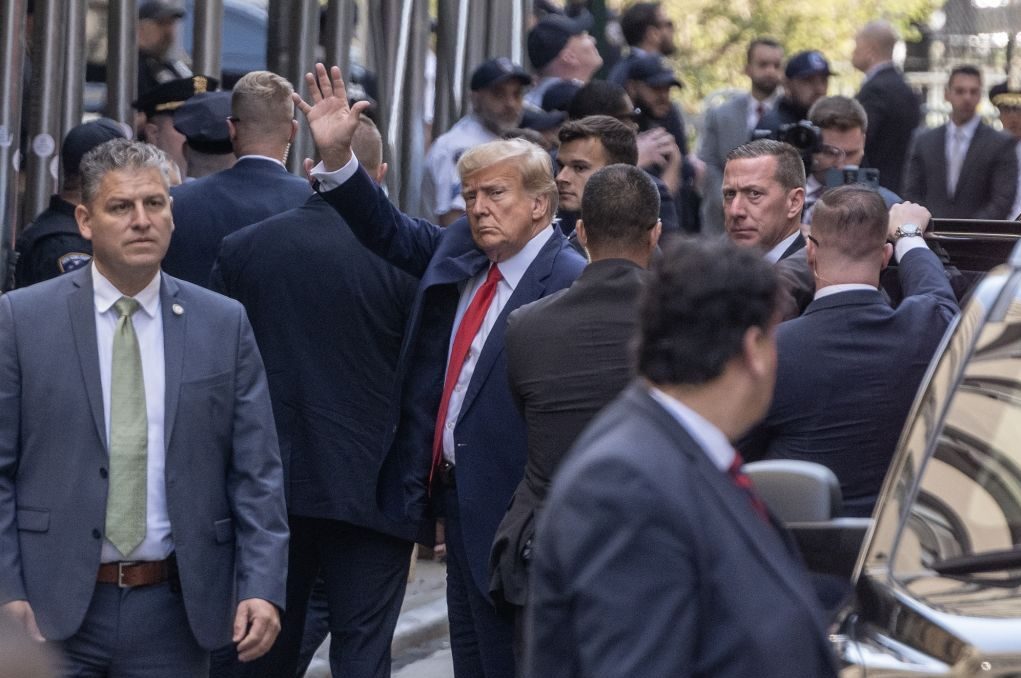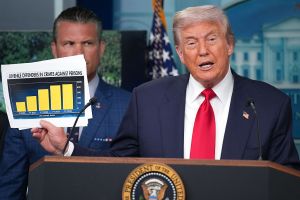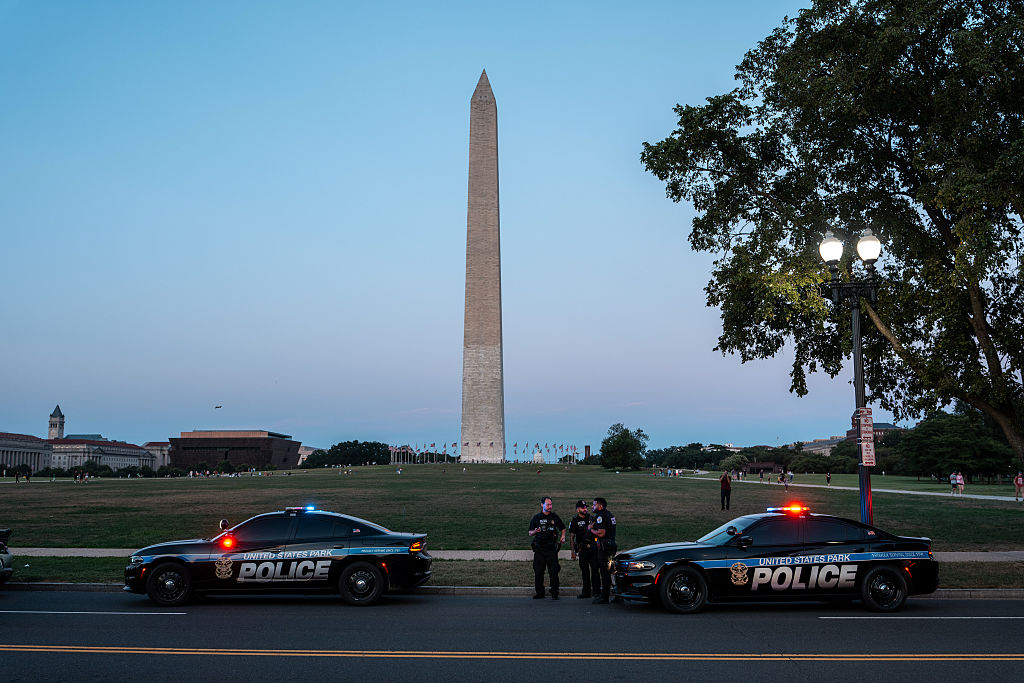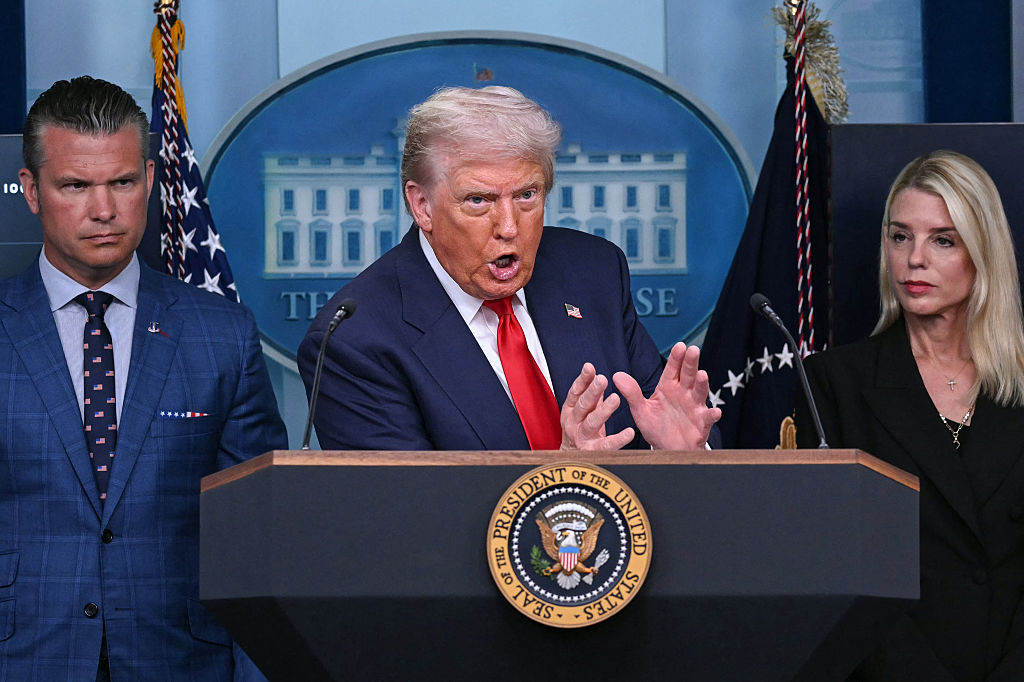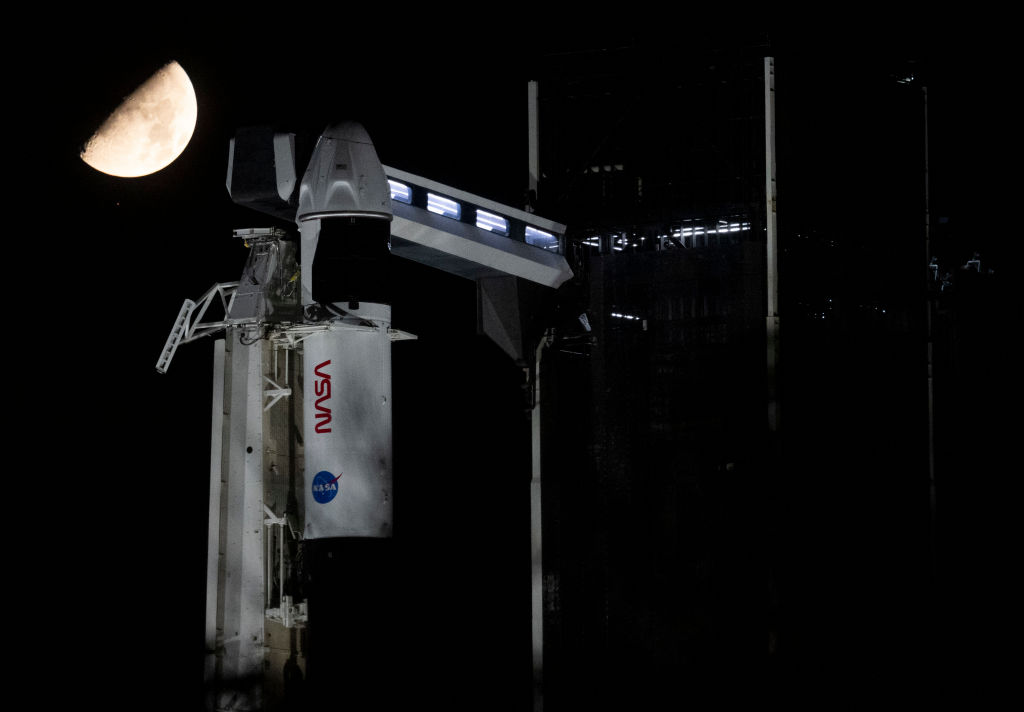Alvin Bragg has made good on his campaign promise to hold former president Donald J. Trump “accountable” by indicting him under New York law for thirty-four felony counts of falsifying business records. For seven years, Bragg’s predecessor and numerous federal entities considered the same facts and declined to pursue charges. Given Bragg’s well documented leniency toward the violent criminals currently terrorizing New York, it’s difficult to imagine this case would have been brought against anyone but Trump.
At the center of Bragg’s case is the allegation that Trump used his former attorney, Michael Cohen, to make purported hush money payments totaling $130,000 to Stormy Daniels, which were then disguised to appear to be ordinary legal expenses from Trump to Cohen via Trump entities. Under New York law, a person commits the crime of falsifying business records in the first degree when he makes a false entry in the business records of an enterprise with the intent to defraud, including the “intent to commit another crime or to aid or conceal the commission thereof.” In other words, Bragg is contending Trump created false business records while actually covering up another unspecified crime. If Trump had simply made false business entries without the intent to commit another crime, Bragg could only charge him with a misdemeanor.
There are at least three fundamental problems with the Bragg indictment that make it questionable as a matter of law.
First, the statute of limitations has expired. Even if everything Bragg alleges is true, Trump made his final payment to Cohen on December 5, 2017, more than five years ago. The law prohibits Bragg from prosecuting Trump for a misdemeanor that occurred more than two years ago or a felony that occurred more than five years ago.
Second, Bragg may be trying to bootstrap a federal crime onto his state crime indictment for the sole purpose of enhancing the state crime from a misdemeanor into a felony. Bragg has suggested the underlying crime Trump committed, and then used false business records to hide, was a federal campaign finance violation: promoting his presidential candidacy by hiding evidence of payoffs to a porn actress. Trump never has been charged with campaign finance violations, nor is it by any means clear that he committed any such federal transgressions. What jurisdiction does Bragg possess to enforce federal law?
Indeed, under a long line of recent Supreme Court cases, any fact that increases the penalty for a crime by raising the ceiling or lowering the floor of the otherwise applicable statutory range must be submitted to the jury and proven beyond a reasonable doubt at trial. No state jury has the power to determine the existence of a federal crime in the first instance, much less to use the allegation of a federal crime to enhance a state crime. Bragg’s transformation of a state misdemeanor into a state felony riding on the back of federal crime could be a violation of the Fifth Amendment due process clause of the United States Constitution.
Alternatively, Bragg suggested at a post-indictment press conference that Trump may have violated New York election law by allegedly concealing news of his relationship with Daniels to influence the outcome of the 2016 presidential election by defrauding voters of information. This claim raises the same question of why Bragg possesses authority to enforce standards regarding a national election where federal law preempts state law. It also presents Bragg with possibly insurmountable hurdles in proving Trump’s intent to defraud and voters’ purported reliance on the Trump records.
Third, and perhaps of deepest legal significance, the Bragg indictment may violate the Sixth Amendment to the United States Constitution, which also applies to the states. The Sixth Amendment requires that the government inform the criminally accused of the charges against him:
In all criminal prosecutions, the accused shall enjoy the right to a speedy and public trial, by an impartial jury of the State and district wherein the crime shall have been committed, which district shall have been previously ascertained by law, and to be informed of the nature and cause of the accusation; to be confronted with the witnesses against him; to have compulsory process for obtaining witnesses in his favor, and to have the Assistance of Counsel for his defense.
In this case, Bragg has refused to describe in the indictment the crime that forms the basis for the state felony charges against Trump. Providing notice as to the crime one has committed, and the elements thereof, is critical to a fair trial because a defendant cannot rebuff a vaporous charge. Indeed, the historical basis for the Sixth Amendment was the Framers’ determination that the new world avoid the Star Chamber abuses of the old world. As a matter of constitutional law and fundamental fairness, the failure to state an alleged underlying crime may be the most grievous omission in Bragg’s indictment.
The absence of any statement of crime could be the basis for various forms of relief: Trump could seek a bill of particulars demanding to know more specific information; Trump could move to dismiss the indictment as defective pre-trial under New York criminal procedure rules; or Trump could seek post-trial reversal and relief from the appellate courts, all the way up to the United States Supreme Court, should he be convicted of any crimes.
“Show me the man, and I’ll show you the crime,” sneered Lavrenty Beria, Josef Stalin’s ruthless deputy premier. Bragg’s promise to indict Trump, even before he gathered a shred of evidence, did not bespeak the sober-minded judgment we expect in a nation founded on the rule of law. What Bragg did convey, and what the world is perceiving, is a vindictive prosecution based more on the deep state’s visceral hatred of a man rather than an unwavering commitment to the impartial enforcement of the law.



